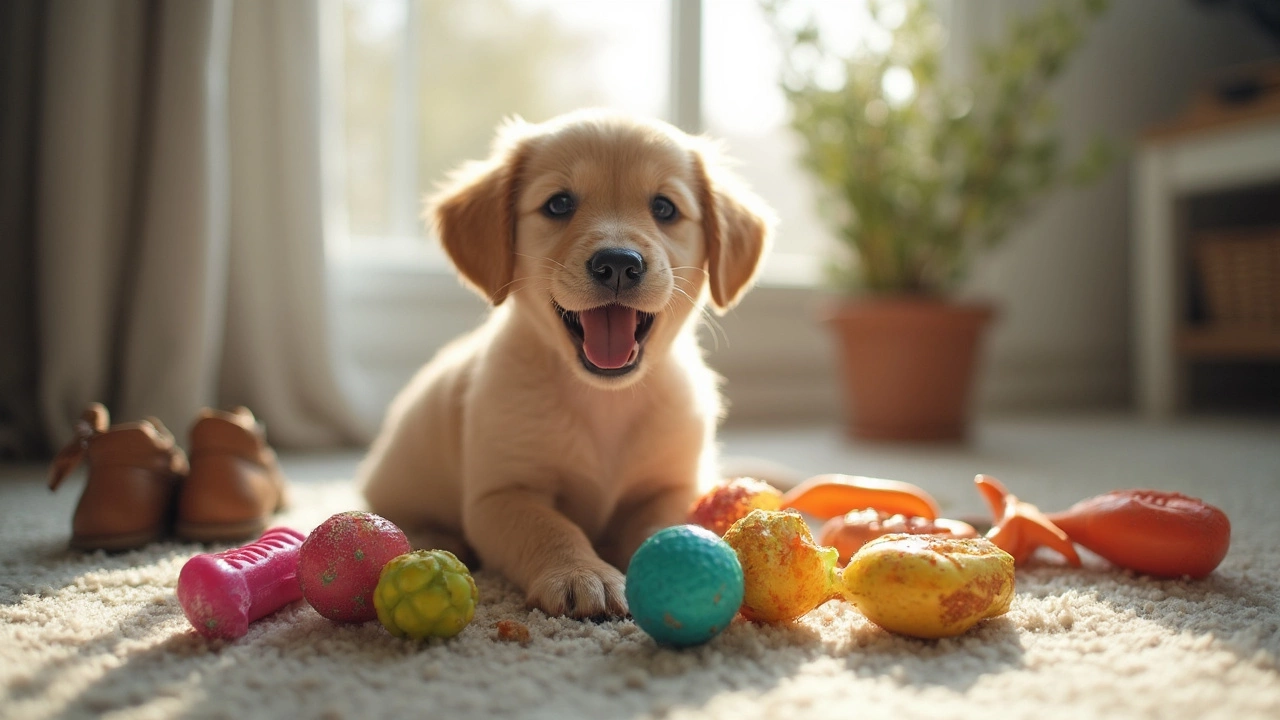Puppy Biting Solutions: How to End the Nipping Quickly
If your puppy thinks your hands are chew toys, you’re not alone. Most owners face the "why does my pup bite me?" problem in the first few weeks. The good news is that biting isn’t a sign of aggression, it’s a normal part of puppy development. With the right tools, you can teach your little furball to use its mouth gently and stop the painful nips.
Why Puppies Bite
Puppies explore the world with their mouths, just like babies do with their hands. Chewing helps them relieve teething pain, practice hunting instincts, and get feedback from you. If a bite gets a big reaction—laughing, shouting, or pulling away—that’s a clear answer to the pup: "that hurts, stop!" But if you ignore the bite or unintentionally reward it with attention, the behavior sticks.
Another factor is energy. A puppy with too much zoomies will bite simply because it has nowhere else to burn that spark. And remember, breed and size can affect how quickly a pup outgrows the habit. Smaller breeds often mature earlier, while larger ones may chew longer.
Proven Strategies to Stop the Biting
1. Use a "ouch" cue. When the bite lands, say a firm "ouch" and pull away. This mimics the way littermates play—when one puppy bites too hard, the other yelps and stops. The key is to keep the tone calm but confident.
2. Redirect to a chew toy. Keep a selection of safe, puppy‑friendly toys nearby. As soon as the bite starts, offer the toy and praise the switch. This teaches the pup that toys, not skin, are for chewing.
3. Freeze play. If the bite is hard or persistent, stop the game instantly. Stand up, turn away, and ignore the puppy for 30 seconds. The pause tells the pup that biting ends fun time.
4. Teach a gentle mouth. While the puppy is calm, gently take its mouth and open it a fraction, then release and reward with a treat. Repeat until the pup learns a soft bite isn’t scary.
5. Provide plenty of exercise. A tired puppy is a well‑behaved puppy. Daily walks, fetch, or a short agility session can drain excess energy that would otherwise turn into nipping.
6. Stay consistent. Everyone in the household must use the same cue and redirection method. Mixed signals confuse the puppy and prolong the habit.
For extra help, check out our detailed guides on related topics: "When Do Puppies Stop Biting?", "Puppy Crate Training: Should You Use a Pee Pad?" and "Puppy Free Roam Timing". These posts dive deeper into the age‑related timeline and give step‑by‑step plans you can follow.
Remember, patience beats frustration every time. Most puppies stop biting between 4 and 6 months when you consistently reinforce gentle play. If the nipping persists past a year, a quick chat with a vet or professional trainer can rule out any underlying issues.
Start today: pick a favorite chew toy, practice the "ouch" cue, and schedule a short play session where you apply these tips. Within a few weeks you’ll notice fewer nips and more cuddles. Happy training!
Puppy Chew Toys: What Should I Give My Puppy to Chew On?
Picking the right chew toys can save your sanity and your furniture when you have a teething puppy at home. This article breaks down which chewing items are safe, which ones to avoid, and hands-on tips to keep your pup happily occupied. Explore how chew toys support healthy teeth and behavior, and get smart ideas for both store-bought and DIY options. You'll also learn signs that a toy isn't safe, so your puppy stays happy and healthy. All practical info and real-life advice, straight from someone who's been there.
